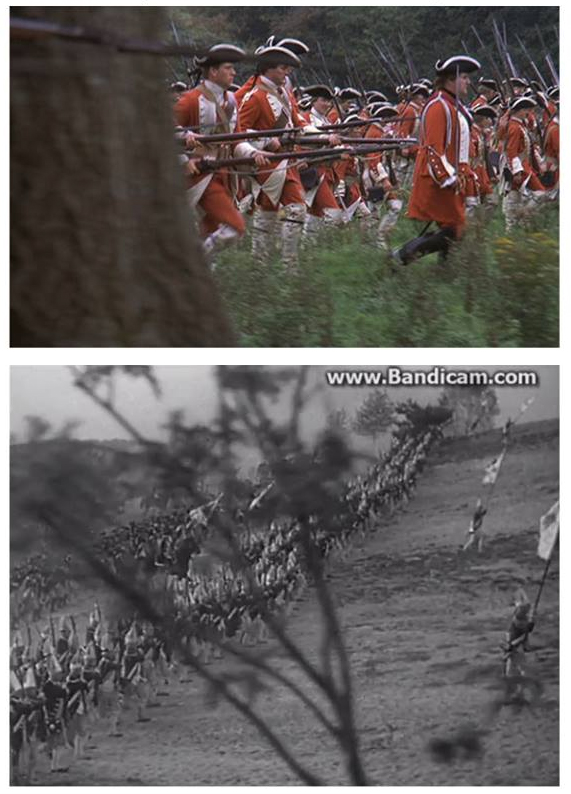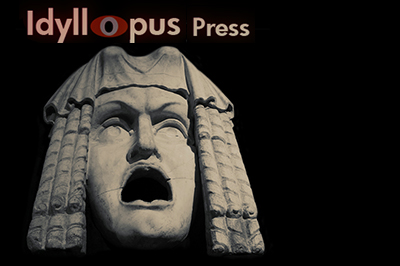Barry Lyndon and Veit Harlan's The Great King
In Kubrick's Barry Lyndon, a failed skirmish with the French replaces what was, in Thackeray's book, the Anglo-German victory against the French at the Battle of Minden on August 1, 1759. In the movie and book, Barry's horror of war now begins.
Veit Harlan, who made films for the Third Reich, and was Kubrick's uncle-in-law through his marriage to Christiane, in 1940-42 made the film The Great King, in which the opening battle is the catastrophic failure of the Prussians at the Battle of Kunersdorf on August 12, 1759. Watching The Great King, I was struck by certain similarities in the filming of the opening of these battles. An example is how both have the camera tracking a side view of the action from behind an occasional tree.

It may be that the similarity is only a matter of a standard style, but both also involve an extended preamble to scenes of physical encounter in battle, focusing initially on the tense advancing of soldiers across the field toward their fate.
Veit Harlan's film, at first, seems close to becoming anti-war, cataloguing the sacrifice involved. The King even appears disconsolate, but this is instead disappointment and fury over abandonment and disloyalty. The viewer is instructed that the individual should never take precedence over the group, and total fidelity to the King (who is to be compared to Hitler) must always be maintained.
Both Thackeray and Kubrick instead find despair in war's criminal brutality and horrors that follow Barry throughout his life.
Approx 244 words or a 1/2 single-spaced page. A 2 minute read at 130 wpm.
Return to the top of the page
Go to Table of Contents for Analysis of Barry Lyndon
Link to the main Kubrick page for all the analyses

